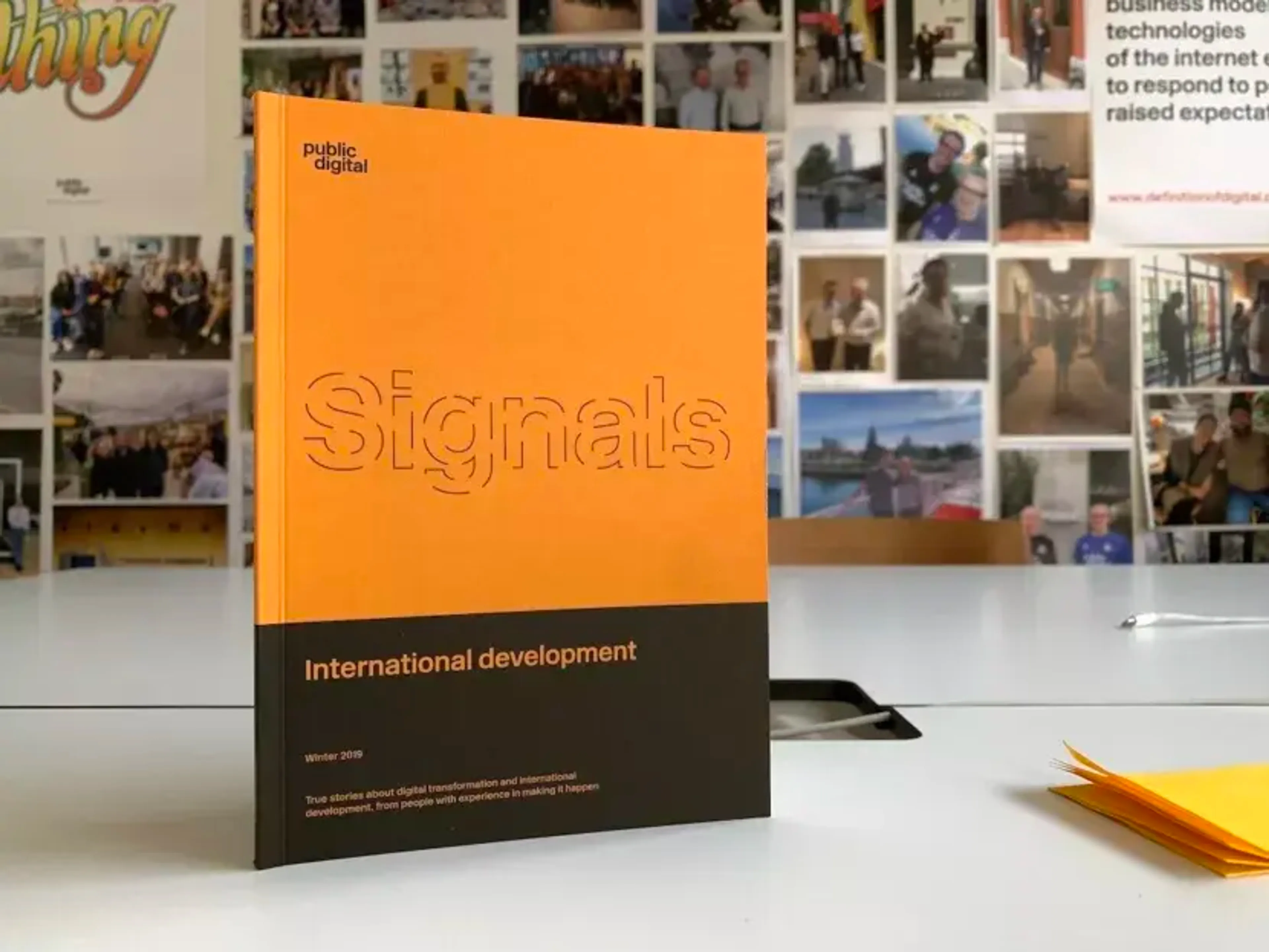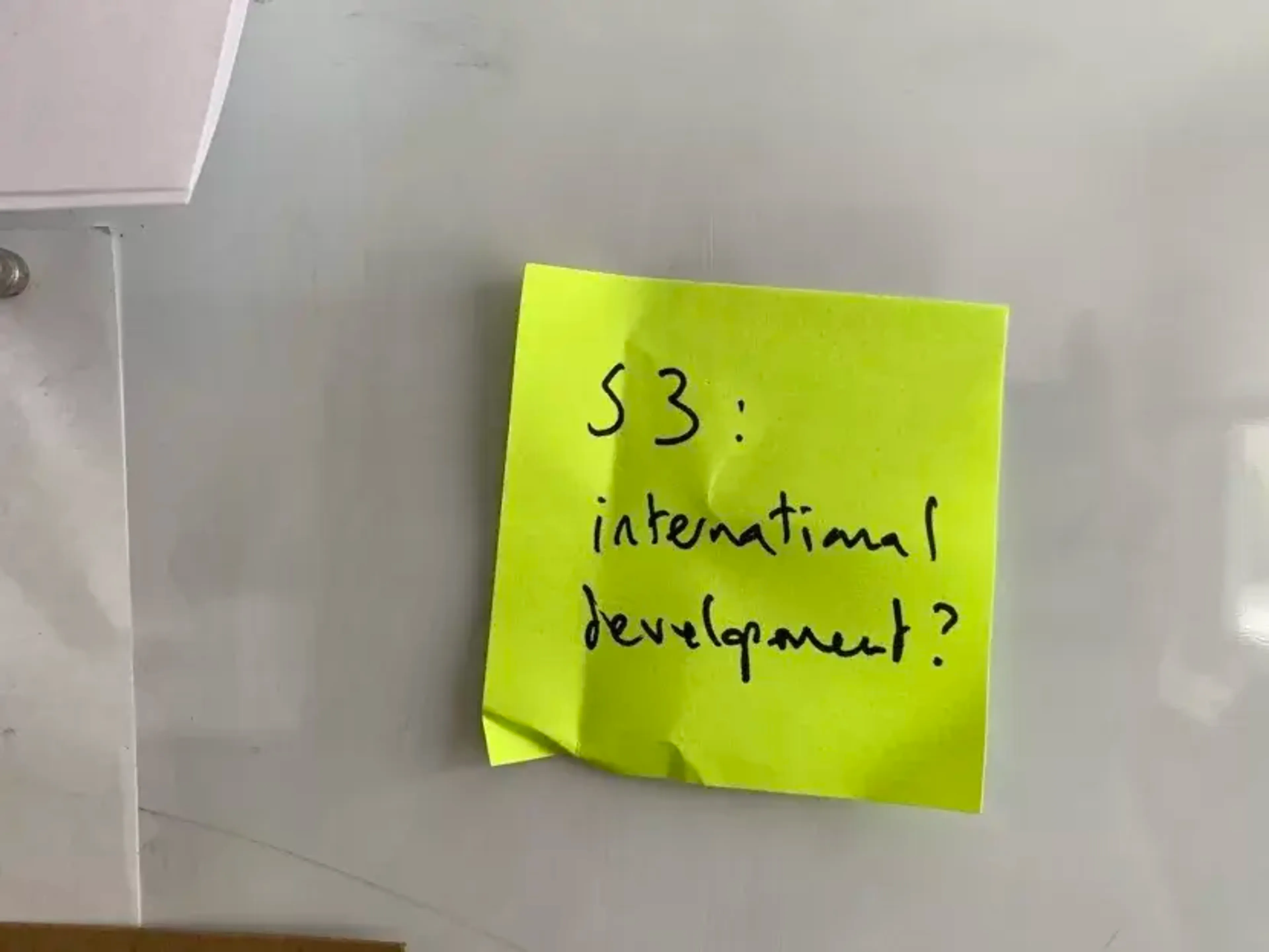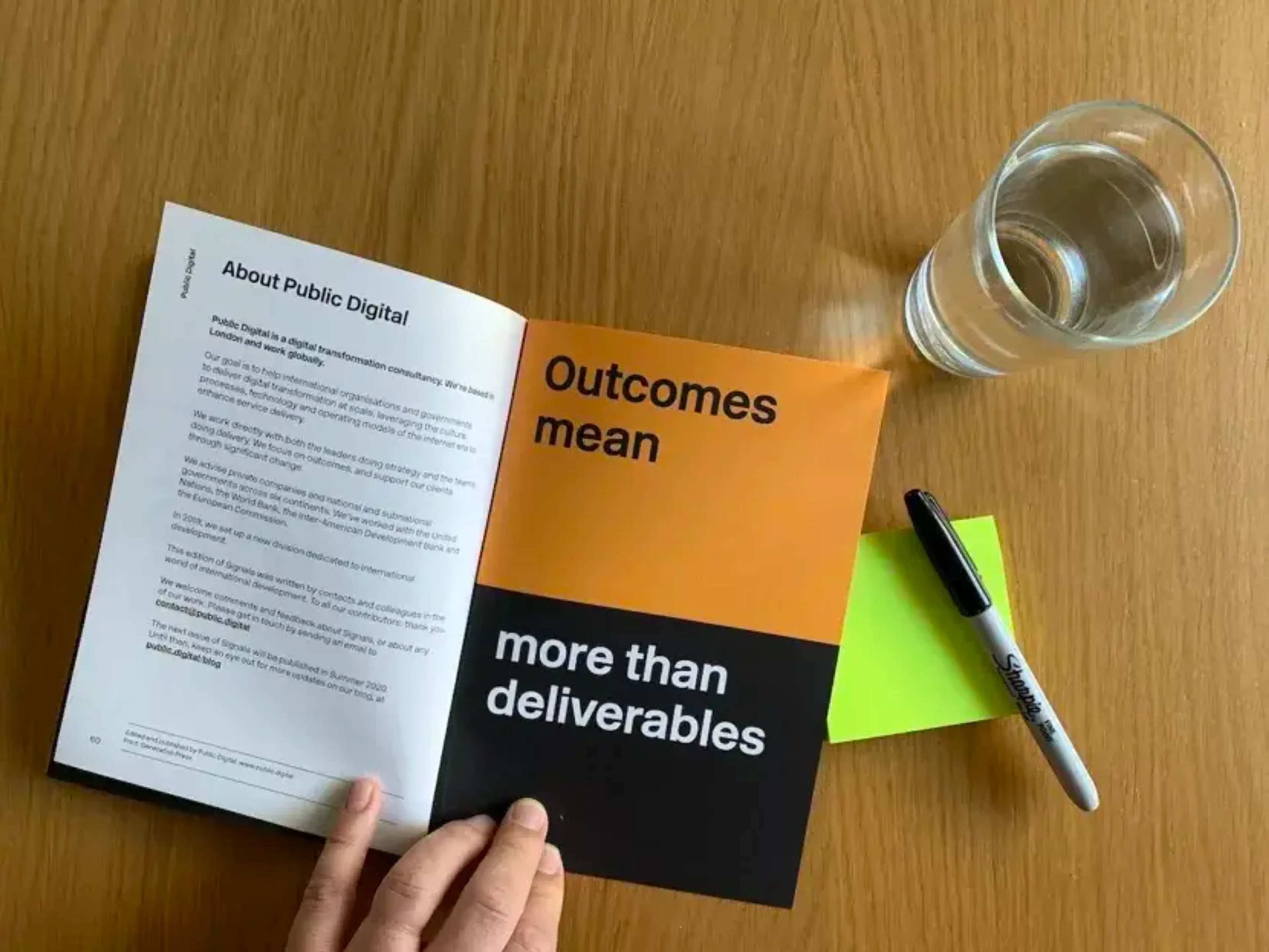Signals from the field of international development
Emily Middleton worked as a Partner at Public Digital from September 2018 until July 2024 and set up Public Digital’s international practice, working with multilateral development banks, UN agencies, and philanthropies.

Here it is, fresh from the printer: the latest edition of our periodical, Signals. This one is all about digital transformation in international development, reflecting Public Digital’s growing work in that area.
It’s very different in content, tone and style to the previous edition (which you can now read for free online).
That last Signals was mostly practical advice, tips and tricks for practitioners. This one takes a step back and a wider view of its subject matter. It’s more reflective, but no less opinionated.
In this edition:
- new Public Digital affiliate Francine Bennett writes about A responsible future for data (published in English and French)
- Yasodara Córdova and Tiago Peixoto from the World Bank sum up what they have learned in Digital government in developing countries
- the team from PD partners Caribou Digital write up Five reflections on digital and international development
- Dr Tanya Filer from the Bennett Institute for Public Policy writes about measuring digital success in international development in Humbling the numbers (published in English and Spanish)
- Srijoni Sen of India’s Modular Open Source Identity Platform covers Open source and government
- public service innovation specialist Ishtiaque Hussain offers a case study on Reimagining transformation for the poorest in Bangladesh
- entrepreneur Clement Uwajeneza closes with a personal look back at his experiences leading digital organisations in Rwanda, in Times have changed, and so have I

The opportunities and challenges of digital transformation in Rwanda, Peru, or India are in many ways similar to those in Australia, Denmark or Canada. These articles talk about the culture clash between how most big institutions work, and agile software development. They stress the need to focus on outcomes, and not to be thrown off by rankings, lazy equations or false certainty.
Our contributors also argue that some considerations are especially urgent or important in developing country contexts: whether that’s doing user research, or using data responsibly. They also pose questions that are becoming more pressing: on power, regulation and platforms; on digital identity for development; on making measurement and evaluation more relevant; and on open source and trust.
How to get a copy
As usual, we have some copies to give away to those who ask for them.
This time, the first chance to ask for a copy will be offered to Public Digital newsletter subscribers on Friday: subscribe now to be on the list. We’ve printed a few hundred copies; we’ll do our best to send one to everyone who asks for one, on a first-come first-served basis.
We’d like to use this opportunity to say a public “thank you” to all our contributors: we know your day jobs keep you busy enough. Thank you for giving up some of your time to help create this publication.
